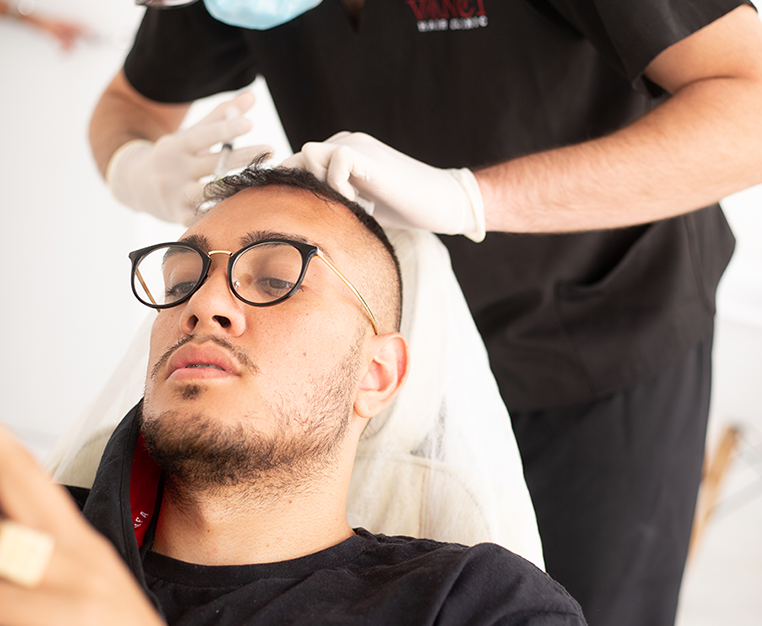We’ve covered the post-COVID hair loss story in this blog before. It’s one that seems to be getting more of an airing recently. That’s possibly down to people waking up to the real cause of their hair loss rather than ascribing it to ageing, pattern baldness or some other cause. There’s another story behind these recent headlines, however. That story is one of the dismissive attitudes displayed by many in the medical field to the whole issue of hair loss.
This article will look at the prevailing attitudes to hair loss and hair restoration. We’re going to look at why these are still out there, as well as looking at some of the reasons why this might be changing. Keep reading to find out more!
Not Taken Seriously
Until recently, anyone turning up at their doctor’s surgery and complaining about post-COVID hair loss couldn’t expect too much sympathy or help. That was partly because the link between having COVID-19 and experiencing hair loss at a later date hadn’t been established. Most doctors were inclined to dismiss the hair loss either as something linked to the normal growth cycle or some other cause. A recent study, however, has demonstrated that the link between hair loss and COVID-19 is real. Does that mean that medical professionals are now taking the issue more seriously? The answer to that question is not a resounding ‘yes’.
While doctors are more willing to accept that a patient is experiencing hair loss as a result of having had COVID-19, the help and support they are offering are still limited for two reasons.
‘Hair Loss is Temporary’
Clinicians who are aware of the latest studies will also be aware that the type of hair loss caused by COVID-19 is telogen effluvium (TE). Brought on by acute stress or trauma, TE is technically classed as hair shedding rather than hair loss. It happens when more hair than usual is pushed into the resting or shedding stages of the growth cycle. While distressing for the sufferer, this form of hair loss is temporary; your hair will regrow in a matter of months.
Doctors are therefore likely to make a check to ensure the patient isn’t suffering from some other medical issue (thyroid or hormonal problems, for example). Once that’s done and they’ve ruled out any ‘real’ medical issue, they may simply advise their patient to be…erm…patient and wait for their hair to regrow. The more enlightened ones may send the patient off with advice on diet and exercise.
‘Hair Loss is Not a Serious Medical Issue’
The second reason is that most clinicians do not regard hair loss as a serious medical issue. In the first place, it’s not something that will hospitalise you or cause you to die. It’s therefore not a top priority for hard-pressed doctors dealing with patients who may have a terminal illness or a debilitating condition with life-limiting consequences. While that is understandable to an extent, this prioritisation feeds into something more toxic, which is the notion that hair loss is a superficial complaint.
If studies have shown that hair loss and COVID-19 are linked, other research has highlighted the effect hair loss can have on the mental health of sufferers. We have looked at this in a previous blog and explored how the issue of hair loss transcends vanity and can profoundly affect your life.
Thankfully, this message seems to be gaining traction with more and more people. This is due, in no small measure, to the willingness of people with a public profile to speak out and share their experiences of living with alopecia and hair loss. Their testimonies have brought home the fact that hair loss is an issue that attacks the mental health of millions of people. Greater discussion and uptake of hair restoration treatments have also helped mainstream these procedures in the public mind. While there is still a way to go, getting a hair transplant is now viewed in much the same way as getting your teeth fixed. That has to be a step in the right direction.
Conclusion
Attitudes to hair loss are, thankfully, starting to shift. There is now a greater awareness that hair loss affects many people at a deep level, at a level that goes far beyond simple vanity. Loss of hair can strip an individual’s self-confidence and self-esteem away. This can affect their ability to do their job. It can even affect personal relationships. Perhaps the medical profession is slowly waking up to this.
If you’re concerned about hair loss, don’t keep your worries bottled up. Talk to a hair expert. Your fears may be unfounded, but if they’re not, then the sooner you start dealing with the issue the better. Vinci Hair Clinic can help. We’re one of the world’s leading hair restoration companies with clinics all over the globe. We offer a free consultation to all our new clients. All you have to do is get in touch and make an appointment. Do it today!



